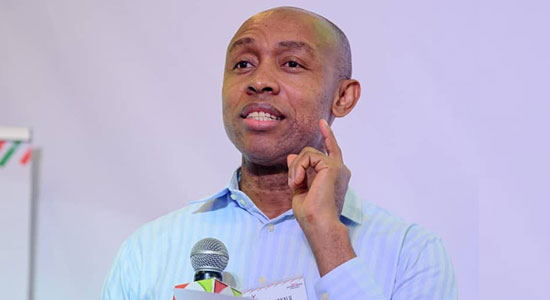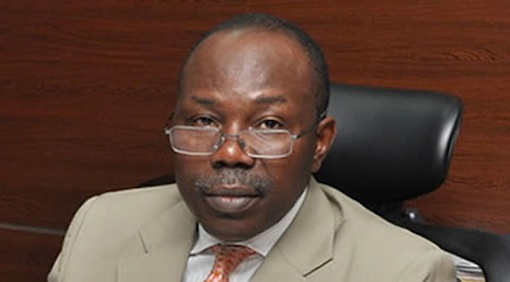The Curse Of An Incapable State

Nigeria’s response to the onset of murderous mass violence has evolved through phases of co-optation, brutal reprisal, appeasement, and state incapacity. The two options that have never quite been attempted with conviction are effective accountability and civic inclusion. Through phases of anti-terrorism, counter-terrorism and, now, interminable and metastasizing counter-insurgencies, the country has found itself mired in chronic mass violence as the only language of political dialogue. With many reluctant to acknowledge how the country quite ended up in this denouement, it is important to look back briefly in order to look forward.
Outlawry in post-colonial Nigeria has a long and tawdry history. Stephen Ellis, who spent a lifetime researching and analyzing this in some detail, recounted in his final book, This Present Darkness: A History of Organised Crime in Nigeria, when the spike started: “shortly before the civil war, when government broke down in some parts of the Western Region and there was a blurred line between political violence, crime, and organized insurgency.” Many would argue that Nigeria has been one long insurgency since then in what has been – on close inspection – a long war against the logical consequences of chronic leadership failure.
The post-war continuation of the error that we can shoot our way out of this failure of both leadership and national inclusion can be traced back to the public executions by firing squad of armed robbers, which began at the former Bar Beach in Lagos on 26 April, 1971. The spike in armed robbery in Nigeria coincided with the mismanagement by the Yakubu Gowon regime of demobilization in the aftermath of the Nigerian Civil War. With neither preparation for post-military life nor skills to survive in the rough and tumble of civilian existence after the war, the tens of thousands of hurriedly demobilized men found alternative uses for their arms and skills, often not in the most civil way possible. Public execution did not end armed robbery. If anything, violent robbery escalated in both frequency and brutality.
The onset of presidential politics in 1979 did not just make civilians of soldiers, it also made civilians of armed robbers, who provided the violent brawn to complement the political brains of politicians in savage electoral brigandage. The numbers confectioned by this criminal tag-team, as acknowledged by the Bolarinwa Babalakin Judicial Commission of Inquiry into the Federal Electoral Commission (FEDECO), often received judicial benediction from election tribunals. Senior Police officers, including former Inspector-General of Police, Sunday Adewusi and former Police Commissioner in the old Anambra State, Bishop Eyitene, both now sadly late, compiled infamous records of electoral joint enterprise with these merchants of violence.
With the return of the military to government in 1983, we had a gradual escalation of violence to the point where, by the mid-1990s, the regime of General Abacha fully deployed criminal gangs and networks against peaceful civic advocacy in the Niger Delta. In institutions of tertiary education, vice-chancellors in various universities and rectors of polytechnics did the same. By the time the country returned to civil rule in 1999, the politicians were happy to resume their marriage with violence and its unlicensed suppliers. This time, as former senator, Shehu Sani, recalls in the title of his book, in addition to using them to rig elections, they were also freely deployed as tools of political assassination.
When the police liquidated a little known Islamic Cleric, Mohammed Yusuf, and hundreds of his followers in Maiduguri, north-east Nigeria, in July 2009, they did not realise how swiftly or steeply the violence would switch gears. Law enforcement, hitherto used to deniable means of committing such atrocities, had become fully converted to the methods of outlawry. The blowback ended any pretence to a law enforcement response to Nigeria’s violence and launched the country into an interminable season of mass atrocities.
In 2011, President Goodluck Jonathan, embattled in the north-east, invited a blue-ribbon panel to help the country understand the issues and think through its options. To lead this task, he tapped Gaji Galtimari, a former public administrator and diplomat and leader of the Borno Elders Forum, who died in 2019. When it reported at the end of 2011, the Galtimari Committee “traced the origins of private militias in Borno State, of which Boko Haram in particular is an offshoot, to politicians who set them up in the run up to the 2003 general elections. The militias were armed and used extensively as political thugs. After the elections and having achieved their primary purpose, the politicians left the militias to their fate since they could not continue keeping them employed. With no visible means of sustenance, some of the militias gravitated towards religious extremism, the type offered by Mohammed Yusuf.”
The Galtimari Report recommended that the government should “beam their searchlight on some politicians who sponsored, funded and used the militia groups that later metamorphosed into Boko Haram and bring them to justice.” In its White Paper issued in May 2012 on the report, the Federal Government accepted this recommendation and directed the National Security Adviser to co-ordinate compliance. One decade later, nothing has come of this recommendation.
Instead, what followed has been a descent into sovereign abdication followed by capitulation. Three years later, in 2015, the crisis in north-east Nigeria had become a source of earnings not merely for elements in the security services but also for mercenaries imported by government and paid with public funds. This, notwithstanding that Nigeria was one of the prime movers behind the Convention for the Elimination of Mercenarism in Africa adopted in 1977, which criminalises mercenarism and renders liable to punishment all persons involved in it.
As candidate in 2015, Muhammadu Buhari cashed in on this and promised to provide the kind of leadership to end it. Far from keeping his word, Buhari doubled down on the abdication, and scaled it up to capitulation before replacing it with bare-faced coddling of terror and insurgents. This appears to have led the rest of the country to the conclusion that insurgency was the only path to dialogue. So, from the north-east, mass violence has been replaced by an epidemic of mass atrocity and from the north-east, the sites of these atrocities under him have spread to all of the country.
As The New Humanitarian memorably reported around the time of the Galtimari Whitepaper, the conclusion was inescapable that “Nigeria’s criminal justice system has failed under the strain, with security force abuses not being investigated and those responsible for Boko Haram attacks not being prosecuted.” One decade later, the situation is inestimably worse, not better.
In what looks like an ultimately doomed effort to divert attention from capitulation to mass atrocity this past week, the Chief Judge of Nigeria’s Federal High Court issued new rules directing that all terrorism trials “shall be held in camera.” This is a breathtaking assertion by one judicial officer of power to re-write with administrative ink the clear provisions of the constitution and of international treaties on human rights to which Nigeria is party. Section 36(4) of that constitution requires that every accused person is “entitled to a fair hearing in public” and the only person or authority who can order trials in camera under section 36(4)(a) is “the court or tribunal” before whom the accused is charged.
Indeed, in its 2017 Report, the Justice Biobele Georgewill Presidential Investigation Panel on the Compliance with Human Rights Obligations and Rules of Engagement by the Nigerian Armed Forces, insisted in a recommendation accepted by the Federal Government that “an arrest under the Terrorism Prevention Act 2015 as amended or any other Acts of Parliament, must be followed by expeditious prosecution within a reasonable time before a court of competent jurisdiction as prescribed by the provisions of Chapter IV of the Constitution of Nigeria 1999 as amended.” As important as his office is, the Chief Judge of the Federal High Court lacks powers to blithely amend the constitution or so cavalierly expropriate rights granted by it.
This mis-step by the Chief Judge of the Federal High Court is the latest in a series of symbolic acknowledgements of the far reaching collapse of state capacity to guarantee that most basic affirmation in section 14(2)(b) of the 1999 Constitution that “the security and welfare of the people shall be the primary purpose of government.” By the beginning of this century, the police and security agencies in Nigeria had come to adopt the methods of the people whom they were supposed to hold accountable. Two decades later, the courts appear keen converts to outlawry in a pretence to fight outlaws. The politicians and their families had for long lived by the mantra that all is fair in the rat race to power. With all of Nigeria’s rulers so committed to denuding it of legitimacy, is it little wonder that the curse of state incapacity in Nigeria is delivering that which communism failed to deliver – a proletarian Nirvana – in which all are joined by the assurance of painful death in mass atrocity or decapitation following mass abduction? 2023 will be interesting.
A lawyer and a teacher, Odinkalu can be reached at [email protected]


